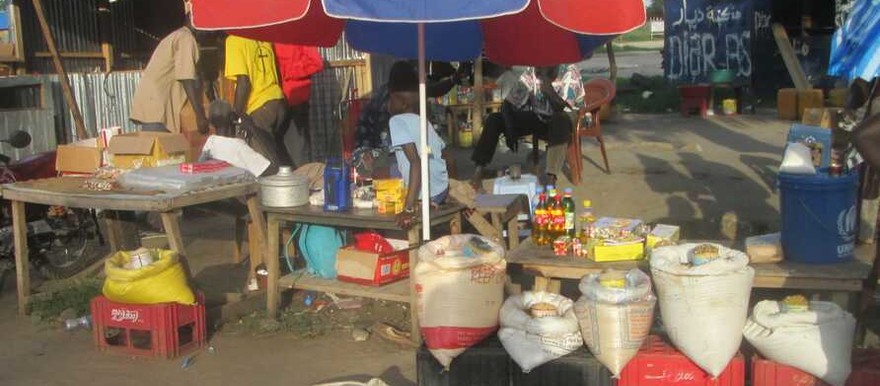A South Sudanese economist, Professor Abraham Matoc, who doubles as Vice Chancellor for Dr. John Garang University has called on the government to regulate commodity prices in the market.
The call comes amidst continuous increment of prices of basic commodities yet the local currency has made gains against the US Dollar in recent weeks.
Speaking to Radio Tamazuj last week, Professor Matoc said, “In advanced countries or countries that move with economic principles, once the exchange rate has declined, the market will also come down even further than that because it is always adjusted. But what happens with us here is that there is no adjustment. The prices remain up and the exchange rate can come down as it has happened.”
He attributed South Sudan’s economic woes to currency speculators, a vibrant and unchecked black market, and an unstructured economy.
“Simply because what exists in the country is a black market with the principle of speculation. So, the speculators will just now make use of the money and determine what quantity of money they will keep at a certain time. And what is necessary is that if the exchange rate is unified and regulated, then the stability will be backed up by price regulation,” Prof. Matoc said.
However, Ladu Lukak Legge, the chairperson of South Sudan’s National Chamber of Commerce said that the Central Bank should give money (hard currency) to businessmen so they can import goods directly instead of giving foreign currency to commercial banks and forex bureaus.
“Yes, the dollar rate is dropping but traders cannot drop prices in the market because they don’t access dollars from the commercial banks and forexes. The commercial banks give the same money they get from the Central Bank at the same rate as the black market which makes it difficult for businessmen to buy,” Lukak said.
He added that commercial and forex exchange bureaus do not give dollars to the traders.
Denis Ojwe, a businessman involved with an airline company in Juba said the government should stop over taxation on both local and foreign businesses for prices to reduce.
“Due to the Covid-19 situation, the government has to reduce taxes for the traders to recover. At that point, even the traders will reduce prices. If the traders are taxed very highly, they will also raise the final prices of their commodities,” Ojwe said.
Early last week, the Central Bank announced an increase in the amount of US Dollars that it auctions weekly to commercial banks and forexes from USD 5 million to 8 million to stabilize the SSP and prices in the market.




